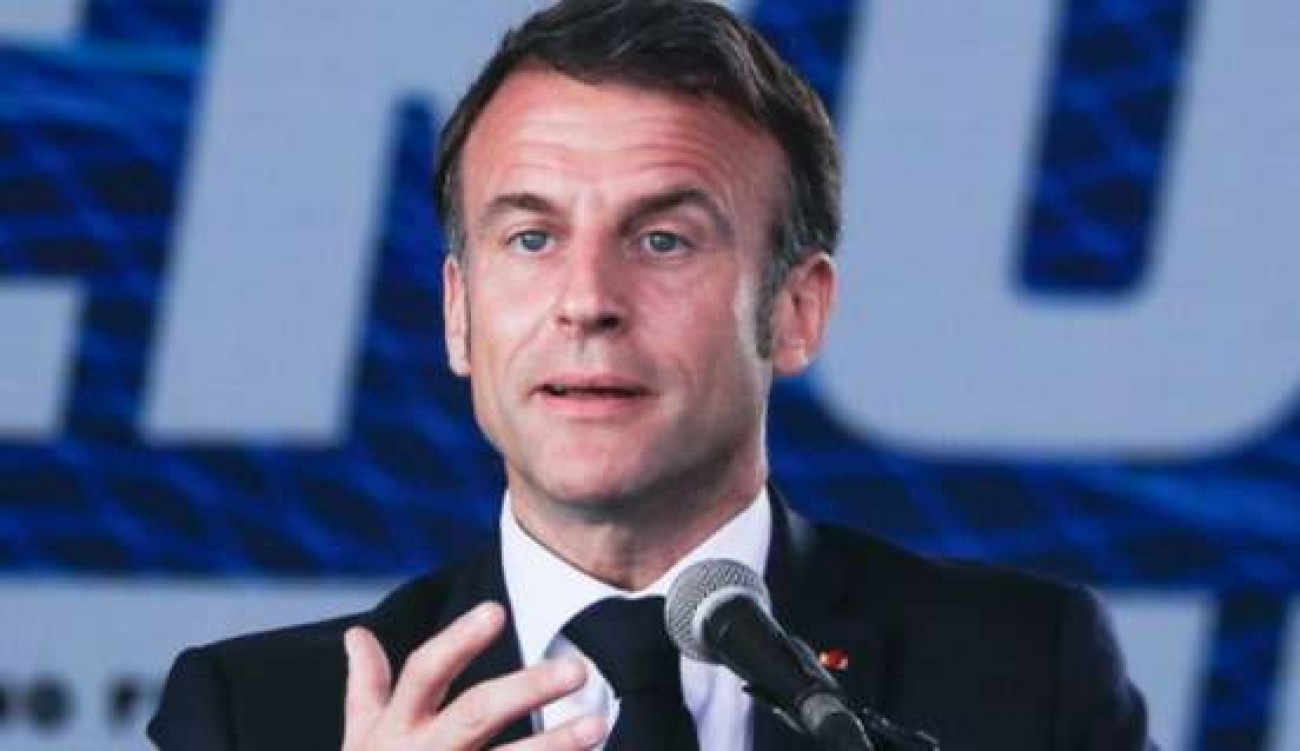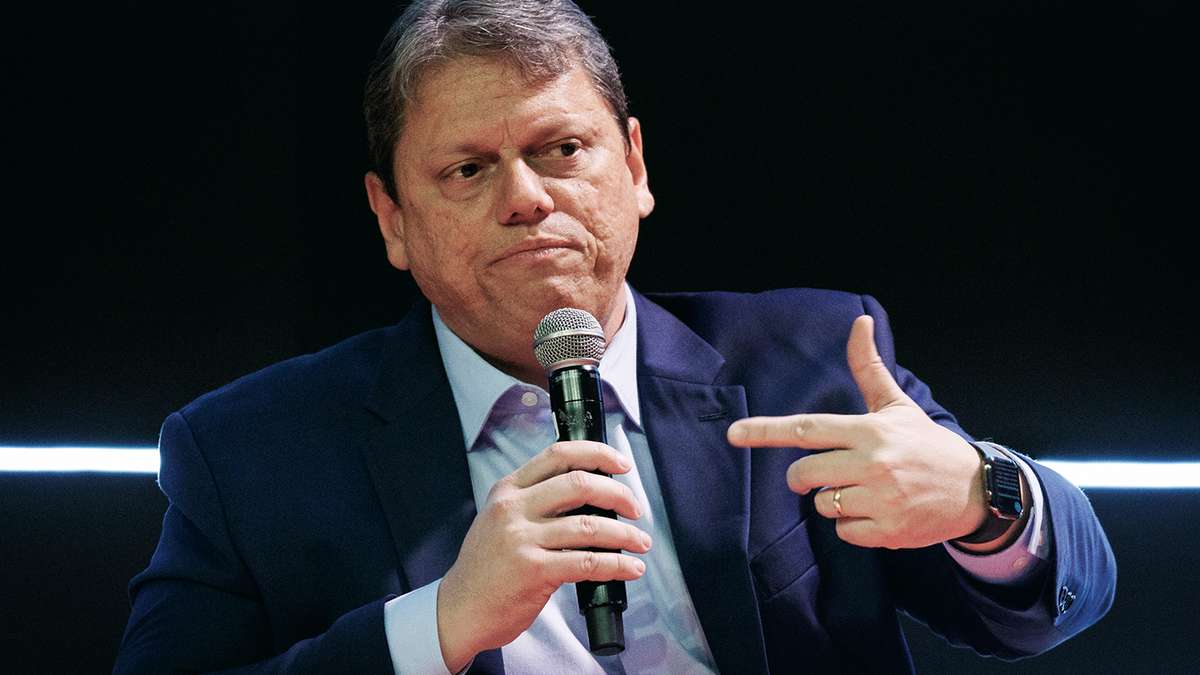The privatization of the train lines of the Companhia Paulista de Trens Metropolitanos (CPTM), the metro and the Companhia de Saneamento Básico do Estado de São Paulo (Sabesp), the main political struggle of the government of Tarcísio de Freitas (Republicans), is not included in the program government which he submitted to the Supreme Electoral Court in 2022. In the document, which formalizes the guidelines for the candidate’s political project, Tarcisio specifically defended “supporting the actions of the federal government or coordinating the concession and privatization of important assets, such as the airports of Congonhas and Campo de Marte and the ports of Santos and Sao Sebastiao.
This is the only proposal on privatization that the then candidate presented, in objective terms, to voters in the government program. SABIS is not mentioned at any point in the document, and there are no studies to privatize it.
During an interview with journalists, on the third Tuesday, the day of the strike that affected millions of São Paulo residents, Tarcisio defended the proposal:
“Can’t we study whether we will get an improvement in service? It is fair that we study and we said in the campaign that we would study,” Tarcisio said.
The topic was discussed in the campaign. Then-candidate Fernando Haddad (Workers’ Party), the current finance minister, said he openly opposed privatization. Tarcisio has made speeches pointing to the potential benefits of privatization, although he has left the topic open, saying he will study the issue, without explaining how or when he intends to do so.
Four days before the first round, Tarcisio said, in an interview with the Flow program, that “privatization is the alternative and will make it better for the citizen.”
The tone was different from the one he adopted as Minister of Infrastructure under Jair Bolsonaro (PL), in February 2022. At that time, before the start of the elections, Tarcisio clearly said on the platform of TC investors: “I will privatize [a Sabesp]”.
See excerpts from Tarcisio’s government programme
– SASB, its privatization, franchising, or studies were not mentioned
Proposals on infrastructure and urban mobility
- Concessions and privatization: Supporting the actions of the Federal Government or coordinating the assignment and privatization of important assets, such as the airports of Congonhas and Campo de Marte and the ports of Santos and São Sebastião, ensuring that the interests of the State of São Paulo and São Paulo are always defended. its citizens. Regarding coastal crossings, work on individual concessions, taking into account the privacy of each crossing.
- Partnership with private initiative: Transferring assets to the private sector, the more beneficial it is for the citizen of São Paulo. Private investment will be the driving force behind generating employment and income. – Reviewing the policy of extending existing concession contracts with the aim of enabling increased investments at the expense of state grant revenues.
- Train and metro routes: Implementing routes that reach the neediest populations in the metropolitan area, with a focus on expanding the São Paulo metro lines, complementing already started lines and implementing regional trains (CPTM). Stimulating urban and economic development in these areas, in order to achieve a balance in the use of urban transportation.
The column requested consultation with the governor this morning, Wednesday 4th of this month, and until the report was published, it did not receive any response. The position was later communicated, at 2:11 p.m., by the Press Communications Secretariat of the Government of São Paulo.
Below is the full memo:
Contrary to what the report claims, the government plan of then candidate Tarcisio de Freitas proposed, on the theme of development and environment, that “given the difficulty of securing public resources to implement all the necessary investments, it is necessary to build” a business environment that encourages the attraction of private capital. This requires planning Strong investment, in the public and private sectors, that meets the needs of the population.” In the “Partnerships with Private Initiatives” clause, the government’s plan emphasizes that one of the platforms will be “the transfer of assets to the private sector, when it is most beneficial to the citizen of São Paulo” and that “private investment will be the driver.” “The driving force behind job and income creation.”
Throughout the campaign, Tarcísio also promoted the proposal to study the privatization of Sabesp in interviews, hearings and discussions. Attracting private capital for public-private partnerships, concessions and privatizations of various sectors of state administration, especially in infrastructure and transportation, was also widely addressed throughout the 2022 elections, in both the first and second rounds.
Source: Guilherme Maziero
Guilherme Maziero is a reporter covering politics in Brasilia (DF). He has worked in newsrooms at O Estado de S. Paulo, EPTV/Globo Campinas, UOL, and The Intercept Brasil. He graduated in Journalism from the Boque Campinas University, and specialized in Public Administration and Government at Unicamp. The author’s opinions do not represent the views of Terra.

“Hardcore beer fanatic. Falls down a lot. Professional coffee fan. Music ninja.”







More Stories
Gerdau (GGBR4) profit reached R$1.25 billion in the first quarter, a decrease of 47.9%; The company announces the distribution of profits
Declining sales of Radeon consoles and GPUs have squeezed AMD’s gaming segment
DET registration is mandatory for MEI from May onwards; See how to register